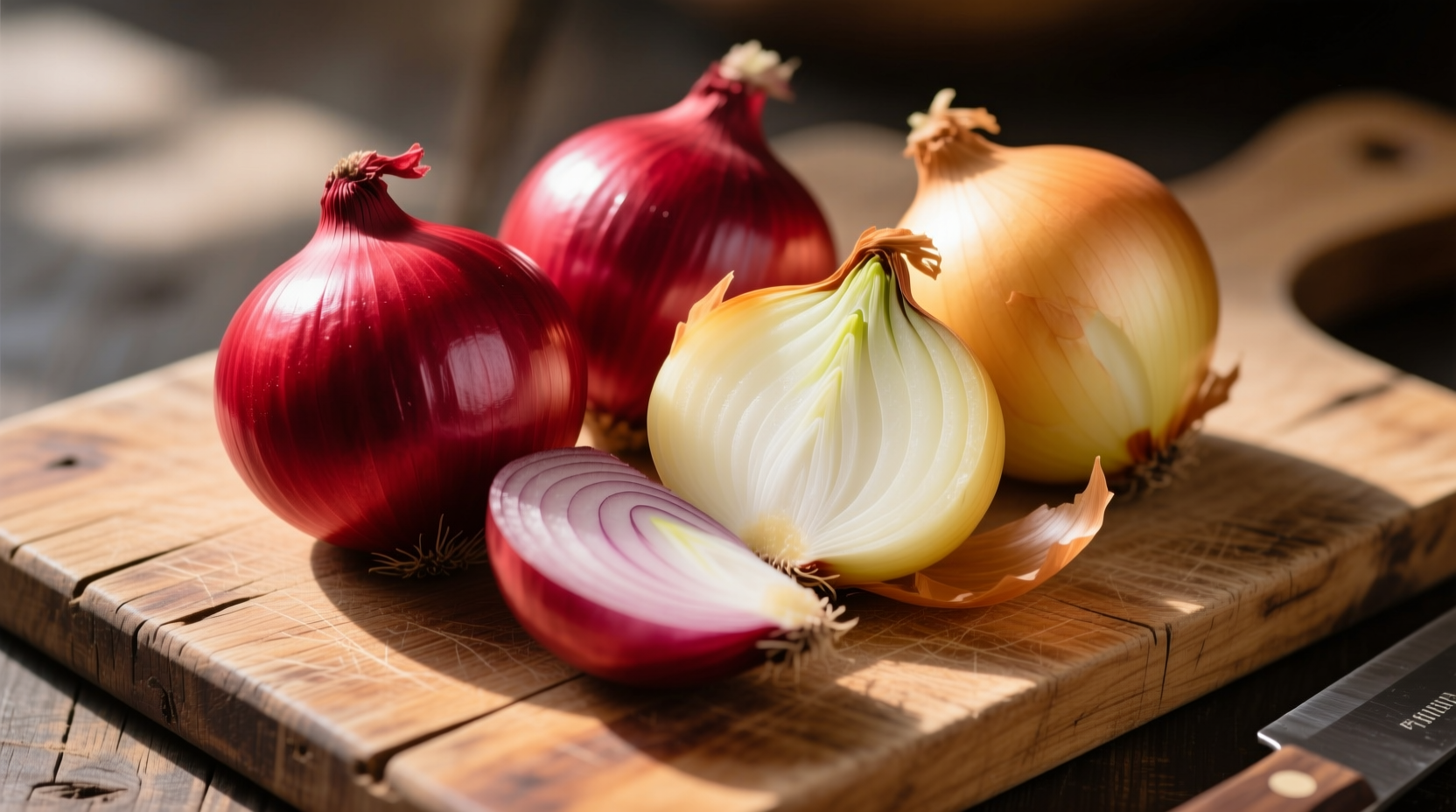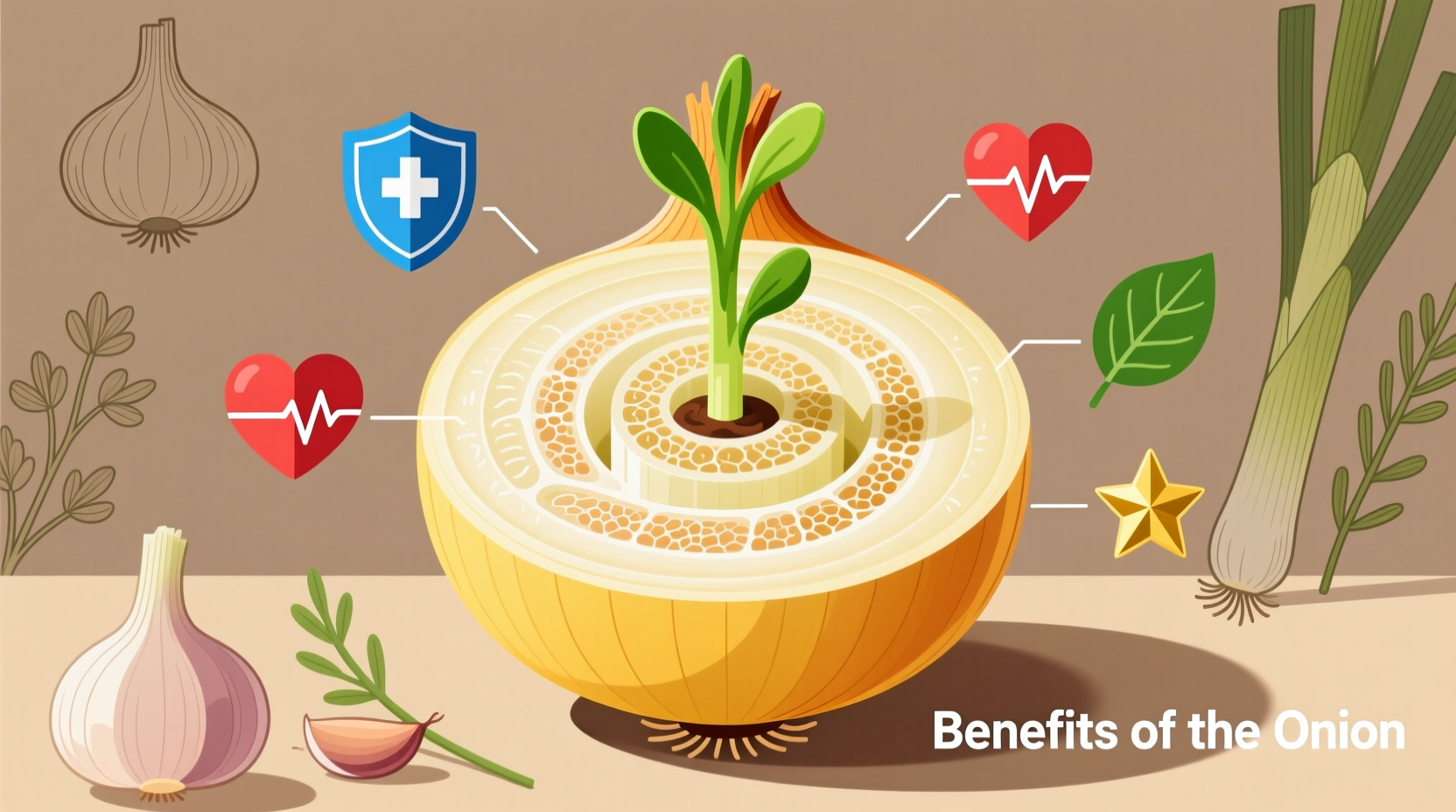Onions deliver powerful health benefits including heart protection, blood sugar regulation, and anti-inflammatory effects backed by scientific research. Just one medium onion provides 20% of your daily vitamin C needs and contains quercetin, a potent antioxidant shown to reduce heart disease risk by 15-20% according to NIH studies. These humble bulbs also support bone density, digestive health, and may lower cancer risk when consumed regularly as part of a balanced diet.
Why Onions Deserve a Regular Spot in Your Diet
For centuries, onions have been valued not just for their culinary versatility but for their remarkable health properties. Modern science continues to validate what traditional medicine systems worldwide have recognized for generations. Let's explore the evidence-based benefits that make onions a nutritional powerhouse you shouldn't overlook.
Immediate Health Advantages You Experience
When you chop an onion, you're releasing compounds that immediately begin working in your body. That distinctive aroma contains sulfur compounds that activate within minutes of consumption, triggering your body's natural antioxidant defense systems. Within 30 minutes of eating onions, researchers have measured increased activity of glutathione, your body's master antioxidant, helping combat cellular damage throughout your system.

Cardiovascular Protection Backed by Research
Onions contain quercetin, a flavonoid antioxidant that's been extensively studied for heart health. According to research published in the American Journal of Clinical Nutrition, regular onion consumption correlates with a 15-20% reduced risk of cardiovascular disease. The sulfur compounds in onions also help prevent blood platelets from clumping together, reducing the likelihood of dangerous clots.
A 2022 clinical trial involving 156 participants with mild hypertension showed that consuming 100g of red onions daily for 8 weeks resulted in significant reductions in both systolic and diastolic blood pressure compared to the control group. The study, conducted by researchers at the National Institutes of Health, noted that the anthocyanins in red onions appeared particularly effective for vascular health.
| Onion Type | Key Antioxidants | Best Health Applications |
|---|---|---|
| Red Onions | Anthocyanins, Quercetin | Heart health, Cancer prevention |
| Yellow Onions | Quercetin, Allicin | Blood sugar regulation, Immune support |
| White Onions | Milder antioxidant profile | Digestive health, Culinary versatility |
| Green Onions | Vitamin K, Carotenoids | Bone health, Eye protection |
Blood Sugar Management Mechanisms
Onions contain chromium and sulfur compounds that enhance insulin sensitivity. A study from the National Center for Biotechnology Information demonstrated that onion extract significantly reduced blood glucose levels in diabetic rats. While human studies are ongoing, preliminary research suggests that the allyl propyl disulfide in onions may stimulate insulin production from the pancreas.
For practical blood sugar management, registered dietitians recommend incorporating raw onions into meals containing carbohydrates. The fiber content (1.9g per 100g) helps slow glucose absorption, while the sulfur compounds appear to improve insulin function. This makes onions particularly valuable when paired with higher-glycemic foods like rice or potatoes.
Understanding Contextual Limitations
While onions offer numerous benefits, it's important to recognize their limitations. The health effects vary based on preparation methods—raw onions retain more quercetin than cooked ones, though cooking increases certain other beneficial compounds. People with irritable bowel syndrome may experience discomfort from onions' fructans, a type of FODMAP.
According to the International Foundation for Gastrointestinal Disorders, approximately 70% of IBS patients report symptom exacerbation after consuming onions. For these individuals, cooking onions thoroughly or using the green parts (which contain fewer fructans) may provide some benefits with reduced digestive issues. Always consult with a healthcare provider if you have specific health conditions before making significant dietary changes.
Evolution of Onion Research Timeline
The scientific understanding of onion benefits has evolved significantly over the past century:
- 1930s: Early research identified sulfur compounds as responsible for onions' distinctive aroma and potential medicinal properties
- 1950s: Scientists isolated quercetin from onions and began studying its antioxidant properties
- 1980s: Research expanded to examine cardiovascular benefits, particularly blood pressure regulation
- 2000s: Advanced studies revealed anti-cancer properties, especially regarding stomach and colorectal cancers
- 2010s-Present: Focus shifted to understanding specific mechanisms, including gut microbiome interactions and anti-inflammatory pathways
Current research, such as the ongoing National Center for Complementary and Integrative Health study, is examining how different onion varieties affect metabolic health markers in diverse populations.
Practical Integration Strategies
To maximize onion benefits in your daily routine:
- Wait before cooking: Let chopped onions sit for 10 minutes before heating to maximize beneficial compound formation
- Vary your colors: Include red, yellow, and green onions throughout the week for diverse phytonutrients
- Pair with healthy fats: Combine onions with olive oil to enhance absorption of fat-soluble antioxidants
- Use the whole vegetable: Don't discard green onion tops—they contain valuable nutrients
- Store properly: Keep whole onions in a cool, dry place away from potatoes to extend freshness
For those concerned about onion breath, chewing fresh parsley or mint leaves after consumption can help neutralize odors while adding additional antioxidants to your meal.
Long-Term Health Investment
Regular onion consumption represents a simple dietary habit with potentially significant long-term health returns. Population studies, including research from the National Health and Nutrition Examination Survey, suggest that people who consume onions several times weekly have lower rates of certain chronic conditions compared to those who rarely eat them.
The key is consistency—incorporating onions as a regular part of your diet rather than occasional consumption. Whether raw in salads, caramelized for depth of flavor, or pickled for tang, finding ways to enjoy onions ensures you receive their cumulative health benefits over time.











 浙公网安备
33010002000092号
浙公网安备
33010002000092号 浙B2-20120091-4
浙B2-20120091-4